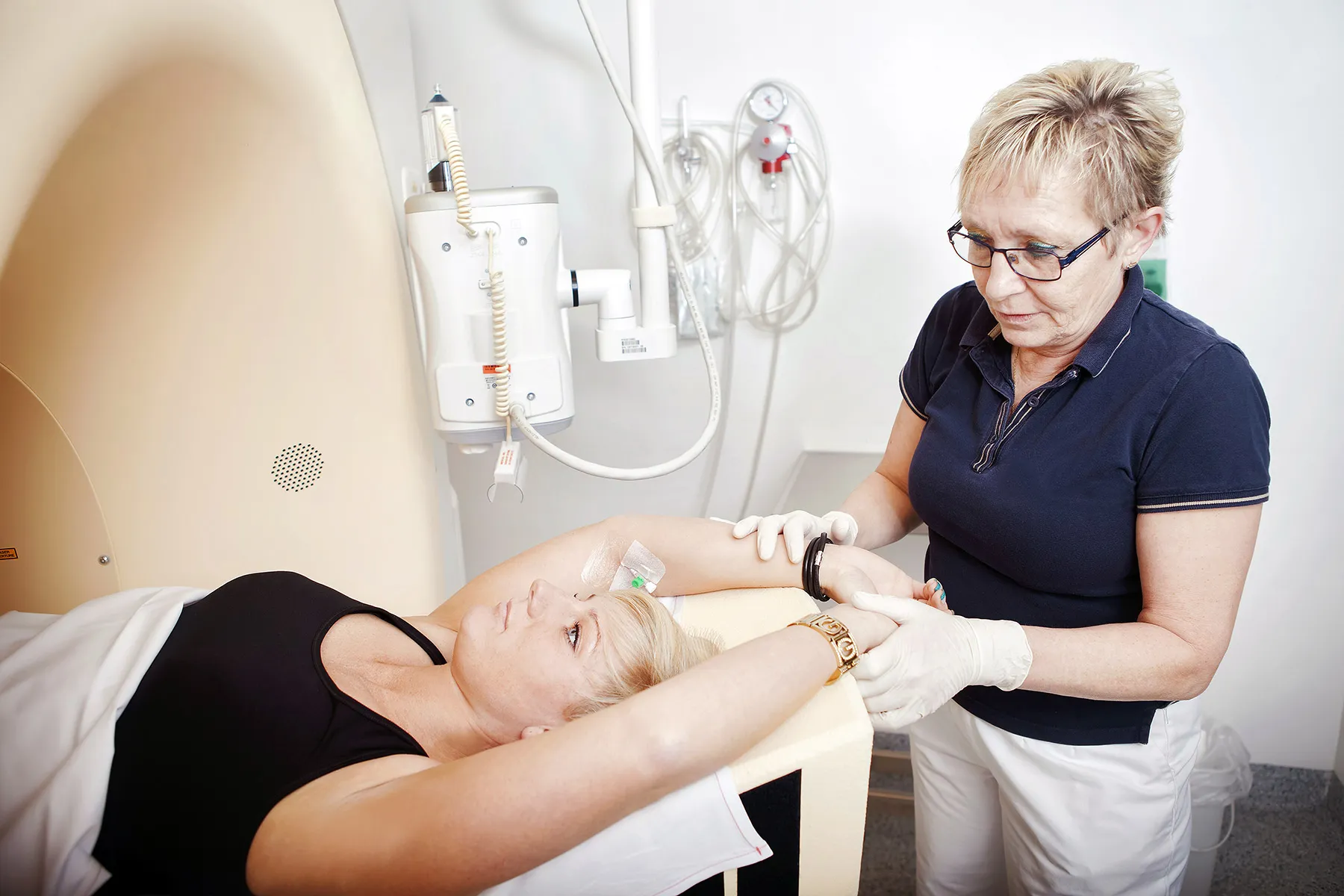What Is Hepatotoxicity?

What Is Hepatotoxicity (Liver Toxicity)?
Toxic liver disease, or drug-induced liver injury (DILI), is damage to your liver. It’s also called hepatotoxicity or toxic hepatitis. It can cause serious symptoms or liver damage if you don’t get help.
Medications, herbal supplements, chemicals, solvents, and alcohol are all possible causes of hepatotoxicity.
What Happens in Toxic Liver Disease?
Your liver filters everything that goes into your body. It clears out alcohol, drugs, and chemicals from your blood. Then it processes the unwanted bits so you can flush them out through your urine or bile.
Sometimes, as your liver does its job of processing your blood, toxins form. They can inflame and damage your liver.
Toxic liver disease may be mild or severe. If it goes on for a while, it could cause permanent liver scarring or cirrhosis. This can lead to liver failure or even death. In some severe cases, as with acetaminophen, even short-term use of too much can be enough to cause liver failure.
Hepatotoxicity Symptoms
You may notice:
- Fever
- Diarrhea
- Dark-colored urine
- Itching
- Jaundice, or yellowish eyes and skin
- Headaches
- No appetite
- Nausea
- Pain in your stomach
- Vomiting
- Weight loss
- White or gray stool
Symptoms may crop up hours after you come in contact with the cause. You may also feel slowly worse over days or weeks of regular exposure.
What Causes Hepatotoxicity?
Toxic liver disease has many possible causes. Some are easier to spot than others:
Hepatotoxicity drugs
Many over-the-counter (OTC) and prescription medications can cause toxic liver disease.
OTC pain relievers:
- Acetaminophen
- Nonsteroidal anti-inflammatory drugs (NSAIDs) such as aspirin, ibuprofen, and naproxen
Prescription drugs:
- Statins
- Antibiotics like amoxicillin-clavulanate or erythromycin
- Arthritis drugs like azathioprine or methotrexate
- Antifungal drugs
- Niacin
- Steroids
- Allopurinol for gout
- Antiviral drugs for HIV infection
Chemotherapy. This common cancer treatment can be another possible cause, depending on the medications used. Some are toxic to the liver.
Supplements that can cause liver toxicity
How could something natural be bad for your liver? In fact, some common herbs could cause toxic liver disease. Watch out for supplements that contain:
- Aloe vera
- Black cohosh
- Cascara
- Chaparral
- Comfrey
- Ephedra
- Kava
Chemicals and solvents
Some workplace chemicals can harm your liver. Some examples are:
- Vinyl chloride, which is used to make plastics
- Carbon tetrachloride, a dry cleaning solution
- Paraquat, a weed killer
- Polychlorinated biphenyls
What Raises Your Chances of Getting It?
You may be more likely to get toxic liver disease if you:
- Take OTC pain relievers more than the recommended dose, with chronic alcohol use
- Already have another liver disease, like cirrhosis; metabolic dysfunction-associated steatotic liver disease (MASLD), formerly known as nonalcoholic fatty liver disease; or hepatitis
- Drink alcohol while you take certain medications or supplements
- Work in a job that uses industrial chemicals that could be toxic
- Are older
- Are female
- Have a gene mutation that affects how well your liver works
Hepatotoxicity Diagnosis
If you notice any of the symptoms and have any of the things that can raise your odds of having toxic liver disease, see your doctor right away.
Your doctor will give you a physical exam, and go over your symptoms and medical history. Tell your doctor if you use any drugs or herbal supplements, drink alcohol, or use any chemicals at work.
Blood tests look for levels of liver enzymes that can show how well your liver is working.
Here are some common liver blood tests:
Alanine transaminase (ALT). ALT is an enzyme in the liver that helps change proteins into energy used by liver cells. High levels could mean liver damage.
Aspartate transaminase (AST). AST helps the body break down amino acids. High levels of AST generally are a sign of liver damage or disease.
Alkaline phosphatase (APT). APT helps to break down proteins. When APT levels go up, it may mean a blocked bile duct that points to liver disease.
Bilirubin. Bilirubin is formed when red blood cells break down. The liver is responsible for getting rid of the bilirubin and other breakdown products. Elevated bilirubin levels may mean liver damage or disease.
Gamma-glutamyltransferase (GGT). GGT is an enzyme, and very high levels may show liver or bile duct damage but could also be a sign of another condition.
L-lactate dehydrogenase (LD). LD is an enzyme that helps cells make energy. High levels could be a sign of liver damage, but could also mean another condition.
Prothrombin time (PT). PT refers to the time it takes your blood to clot. High PT levels could mean liver damage, but certain blood thinners can also cause it to be elevated.
Other tests to diagnose toxic liver disease may include:
Ultrasound. This imaging test uses sound waves to make a detailed image of your liver.
Computed tomography (CT) scans. This test uses a special X-ray machine that rotates around your body and sends images to a computer that creates a cross-section of your body.
Liver biopsy.Your doctor will take a sample of tissue from your liver and look at it under a microscope to check for damage or signs of toxicity.
Hepatotoxicity Treatment
Doctors have several ways to treat toxic liver disease.
Stop your exposure: This is the first step. This could include:
- Switching medications
- Avoiding any herbal supplement or chemical that’s toxic to your liver
- Not drinking alcohol because it puts stress on your liver
Symptoms often get better within a few days if you stop your exposure to the cause.
Acetylcysteine. If there is reason to think an acetaminophen overdose caused your liver disease, quickly go to the hospital to get this drug. It can help prevent liver damage.
Hospital care. At the hospital, you can also get care to treat your symptoms, like IV fluids for dehydration or anti-nausea medicine.
Liver transplant. This option is reserved for severe liver damage.
Preventing Liver Toxicity
You can’t always know ahead of time what drugs or chemicals could cause toxic liver disease. Here are some ways you may be able to prevent it:
Only take the drugs you need. Take them only as your doctor instructs. Follow package directions for the recommended dosage.
Don’t take supplements that contain herbs that could be toxic to your liver. Check the labels of any natural treatment before you take it, and run it by your doctor or pharmacist.
Avoid alcohol if you're taking acetaminophen. The exact amounts of alcohol and acetaminophen that can lead to liver damage aren't known. It's safest to avoid mixing the two.
Follow safety rules if you use any chemicals or solvents at work. Avoid or limit your exposure if you can.
Lock up all drugs or chemicals in your home so children don’t eat them. They can get liver toxicity too. They are more at risk of liver toxicity because of their small size.
Work on weight loss. Losing about 5% of your body weight could make a difference in reducing fat in your liver. A 7% to 10% loss of body weight could decrease inflammation around your liver. It may also reverse fibrosis, or scarring, of the liver. Aim to lose about 1 to 2 pounds a week until you reach your ideal weight.
Make exercise a priority. Intense aerobic exercise is shown to decrease inflammation and fat in the liver. But always check with your doctor before you start a new exercise plan.
Eat a healthy diet. Studies show adopting a nutrition plan that includes fruits and veggies, whole grains, legumes, and nuts could decrease fat in the liver. Swapping olive oil for butter also helps lessen fatty liver, as well as eating more fish and lean poultry.
Don’t skip that morning coffee. Some studies show that those who drank two cups of coffee daily had less liver fibrosis.
Takeaways
Toxic liver disease, or hepatotoxicity, is when you have damage to your liver. The liver is crucial to filtering toxins from your blood, and things like alcohol, acetaminophen, herbal supplements, and some antibiotics can be toxic to this organ.
If you have a mild case of liver hepatotoxicity, it's likely to get better within weeks or months. But if the damage is chronic, or goes on for a while, it can lead to more serious damage like cirrhosis or liver failure. Your chances of serious liver damage also go up if you have another condition such as MASLD or hepatitis.
Prevention of hepatotoxicity is key. To protect your liver, be proactive by:
Using medications responsibly. Take only the ones you need, and use them only as directed.
Staying away from harmful substances. Steer clear of herbal supplements that could harm your liver. Talk to your doctor before you start any new medications or supplements.
Follow safety guidelines. Read and follow all instructions and warnings for any chemicals you use, at home or on the job. Keep all chemicals and medications locked up in your home so that children or pets can't eat them by mistake.
Treatment for hepatotoxicity starts with stopping exposure to toxins. You may need hospital care, where you'll get fluids by IV. If the liver toxicity is severe enough, you may need a liver transplant.
Hepatotoxicity FAQs
What labs indicate hepatotoxicity?
Your doctor will run a battery of labs to see if your liver is affected by hepatotoxicity. Generally, these labs will measure certain enzymes and proteins in your blood. If levels aren't in the normal range, it could be a sign of liver hepatotoxicity.
Will hepatotoxicity go away on its own?
Whether hepatotoxicity gets better on its own depends on the cause, duration, and the liver’s ability to heal itself. In mild cases, when exposure to the toxin or drug is temporary, the liver damage may reverse on its own. This can happen only if you don't have another disease and your liver is otherwise healthy.
Is liver toxicity reversible?
It's possible, depending on the cause of your liver toxicity, how serious it is, and how quickly you treat it. If alcohol or acetaminophen is the cause of the toxicity and if you stop the exposure quickly, you can often reverse it within a few weeks or months.
What does liver toxicity feel like?
Liver toxicity has a range of symptoms: The most common one is yellow skin, or jaundice. Other symptoms you may have are:
- Belly pain
- Tiredness
- Loss of appetite
- Nausea and vomiting
- Fever
- Dark yellow urine
- A rash that looks like purple dots
You should call your doctor if any or all of these symptoms appear.
How long can you live with liver toxicity?
This depends on what caused the toxicity, how long it's been going on, how serious it is, and your general health. Many people who have it will recover within weeks or months.
Which drug is most toxic to your liver?
More than 1,000 drugs can cause liver damage. Both prescription and nonprescription drugs can cause drug-induced liver injury (DILI). But it's hard to know how often it happens because most cases are unreported. Some drugs have a predictable toxic effect on the liver that depends on the dose. This is called intrinsic DILI. Most cases of this type are caused by acetaminophen. Other drugs have an idiosyncratic impact on the liver. This means it's harder to predict how they'll affect the liver at any dose. This includes drugs like like some kinds of antibiotics, herbal supplements, and other common medications.

